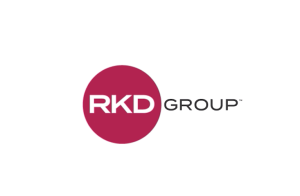Two former executives at international data firm Epsilon Data Management were indicted on charges of mail fraud, wire fraud and conspiracy to commit mail and wire fraud for allegedly participating in the sale of millions of Americans’ information to perpetrators of elder fraud schemes.
Some of the data used was taken from legitimate commercial and nonprofit clients, according to a statement from the U.S. Attorney’s Office for the District of Colorado.
Robert Reger, 53, of Boulder, Colo., and David Lytle, 60, of Leawood, Kan., have both pleaded not guilty. Neither responded to outreach by The NonProfit Times via business social media platforms. Reger’s attorney, Gordon Mehler, responded to an email from The NonProfit Times declining to comment. An email message to Lytle’s attorney bounced back with an out of office message.
Reger was a senior vice president of the Epsilon Data Management’s Data Practice division and Lytle was a business development manager, according to the statement. The indictments against Reger and Lytle were similar. Count One was alleged conspiracy to commit wire fraud. Counts Two through 19 were alleged wire fraud and counts 20 through 28 were alleged mail fraud, according to court documents.
A spokesman for Epsilon Data Management in Irving, Texas, declined comment on the indictments. The firm did issue a statement that read, in part: “As part of Publicis Groupe, Epsilon adheres to the highest standards of compliance and employee conduct. Before acquiring Epsilon, Publicis ensured that Epsilon had taken corrective action, including putting in place an industry-leading compliance program in the Data Practice.”
Regarding elements of the case, the statement read, in part: “With this resolution, Epsilon is putting this matter behind it and continuing its focus on its business. Epsilon has cooperated and actively consulted with the DOJ throughout this investigation, which related to activities that last occurred in 2017 and employees that were separated from the company long before Publicis acquired the company. Alliance Data Systems, the former owner of Epsilon, has agreed to indemnify Publicis for all costs related to the DOJ investigation and resolution, including the monetary payment.”
Under terms of a deferred prosecution agreement (DPA), Epsilon earlier this year agreed to pay $150 million, with $127.5 million of that going to compensate victims of fraudulent schemes that used consumer data sold by Epsilon.
According to a statement from the U.S. Attorney’s Office for the District of Colorado, Epsilon admitted that, from July 2008 through July 2017, employees in its Direct to Consumer (DTC) Unit knowingly sold modeled lists of consumers to clients engaged in fraud. In particular, Epsilon acknowledged that the DTC Unit sold consumer lists to a number of mass-mailing fraud schemes that sent false “sweepstakes” and “astrology” solicitations to consumers, according to a different statement from the U.S. Attorney’s Office for the District of Colorado.
Both men left Epsilon and held positions with other firms, most recently Wiland in Niwot, Colo. Both are no longer with Wiland, having left earlier this year. According to a statement released by Wiland, executives of the firm became aware “that two Wiland employees were indicted by a federal grand jury in Colorado related to alleged conduct while at a previous employer. The alleged conduct has nothing to do with Wiland or their activities with the company. Both individuals have pleaded not guilty to the charges and have resigned from the company.”
Lytle had been with Wiland less than one year and Reger had been with Wiland since July 2017.
That statement concluded: “Wiland remains committed to the highest ethical standards in all of its dealings with the public, its clients, its business partners, and its employees, and looks forward to continuing to meet its clients’ needs with the innovation and excellence for which Wiland is known.”
The consumer data sold by the Epsilon’s DTC unit came both from other allegedly fraudulent clients and from legitimate Epsilon clients, including nonprofit and charitable organizations, according to a statement from the government. DTC Unit employees allegedly continued to sell consumer data to clients and engaged in fraud despite knowing that those and similar clients had been arrested, charged with crimes, convicted, and otherwise subject to law enforcement actions for false and misleading practices. Epsilon admitted that the DTC Unit sold more than 30 million consumers’ data to fraudulent schemes, according to the government’s statements.
“By allowing clients engaged in fraudulent schemes to buy data on millions of consumers most susceptible to their schemes, Epsilon employees facilitated those schemes with staggering effect,” Acting Assistant Attorney General Brian Boynton of the Department of Justice’s Civil Division said via a statement. “We are encouraged by Epsilon’s cooperation since the misconduct was discovered, its remediation efforts, and its commitment to stringent new compliance measures.”
The indictments were unsealed and announced as part of a targeted push by the U.S. Department of Justice to combat elder fraud.
The government also announced it arraigned in U.S. District Court for the District of Colorado the marketing company, KBM Group, LLC, of Richardson, Texas, on a criminal information alleging that it sold millions of Americans’ information to perpetrators of elder fraud schemes. KBM Group and the Justice Department simultaneously filed a DPA with the court, in which KBM Group agreed to settle the charges. The agreement is under consideration by U.S. District Court Chief Judge Philip A. Brimmer in Denver, Colo.
Under the terms of the DPA submitted to the court, KBM Group would pay $42 million, with $33.5 million of that amount going to compensate victims of fraudulent schemes that used consumer data sold by KBM Group. KBM Group also agreed to implement significant compliance measures designed to safeguard consumers’ data and prevent its sale to individuals or entities engaged in fraudulent or deceptive marketing campaigns.








